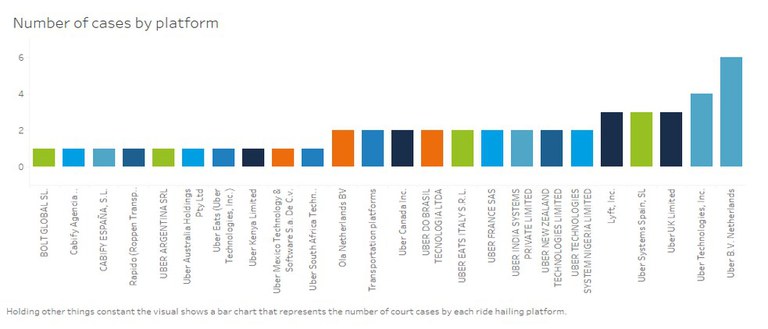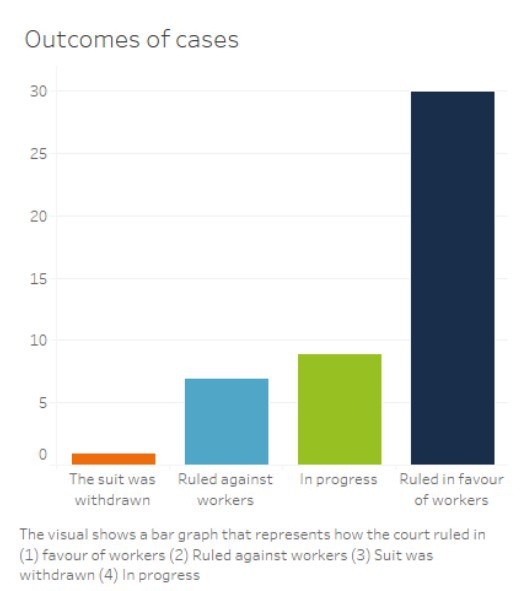This insight was written by the students who joined the WageIndicator Gig and Data teams as part of their internship program. The internship also allows them to contribute to the news collection and write blogs to give an overview of different platform economy topics.
Authors: Jazz Abrahams, Nomalungelo Manana, Motjari Kukuri (The University of Namibia)
Ride-hailing services have significantly changed the transportation industry. Companies in the gig economy such as Uber, Bolt, and others have provided convenient mobility while creating job opportunities through smartphone apps. These platforms allow individuals to earn income by offering rides to passengers. In this model, independent contractors (often called drivers) use their vehicles to provide transportation services to customers. This model has faced legal challenges in various places, sparking debates about employment classification, worker rights, safety regulations, and competition in the transportation sector. As per the Gigpedia database, the total number of cases associated with ride-hailing companies between 2016 and 2024 stands at 47, a substantial figure that underlines the importance of legal scrutiny in this sector.
View the full dataset, including cases from the food delivery sector
WHAT PLATFORMS ARE INVOLVED?
Uber has been at the forefront of legal scrutiny, particularly in the Netherlands (Uber B.V.). This indicates significant legal activity in Dutch courts regarding Uber’s operations. The United Kingdom and the United States have also emerged as prominent battlegrounds with three cases each. Platforms like Bolt and Lyft also feature in these legal disputes, although to a lesser extent than Uber. The prevalence of cases in these countries reflects the intense scrutiny ride-hailing companies face concerning labor rights and regulatory compliance.

WHAT DO THE COURTS SAY?
Out of the 47 cases in the ride-hailing sector, 30 have been ruled in favor of employees, showcasing a trend towards recognizing and addressing driver grievances. This trend indicates a growing support for gig workers' rights within the legal system. Such legal battles are contentious nonetheless - seven cases have been ruled against workers and nine cases remain in progress. These outcomes highlight the ongoing legal battle over the classification and rights of gig economy workers.

HOW IS THE RIDE-HAILING SECTOR DIFFERENT?
While both the ride-hailing and food delivery sectors face legal challenges related to worker classification and rights, there are notable differences. The ride-hailing sector has a higher proportion of cases favoring workers (30 out of 47) compared to the food delivery sector (33 out of 50). This suggests a more robust legal support system for ride-hailing drivers. Geographically, the focus also differs, with the UK and US being more prominent in ride-hailing disputes, whereas Italy and Spain are key battlegrounds for food delivery cases. Moreover, platforms like Uber are central to ride-hailing disputes, while food delivery legal battles involve a wider array of platforms like Glovo and Deliveroo. Overall, the legal landscapes of both sectors highlights the complexity and the need for clear regulations to balance innovation with fair labor practices, ensuring that gig workers are adequately protected worldwide.
Check out the full dashboard to see all the cases, including the food delivery sector.
